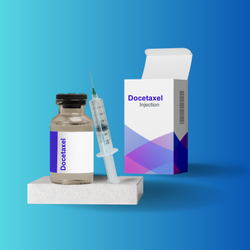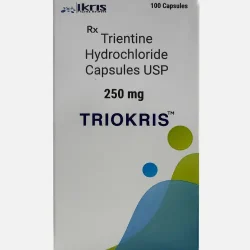Description
Uses of medication:
Efavirenz Emtricitabine Tenofovir, a fixed-dose combination of 2 nucleoside analog HIV-1 reverse transcriptase inhibitors and 1 non-nucleoside HIV-1 reverse transcriptase inhibitor, is used alone as a complete regimen or together with other antiretroviral agents for the treatment of HIV-1 infection in adults and pediatric patients aged 12 years and older.
Dosage:
Efavirenz Emtricitabine Tenofovir is available as tablets. Each tablet contains 600 mg of efavirenz, 200 mg of emtricitabine and 300 mg of tenofovir DF (tenofovir DF, which is equivalent to 245 mg of tenofovir disoproxil).
The recommended dose in adults and pediatric patients (aged 12 years and older and weighing at least 40 kg) is one tablet once daily taken orally on an empty stomach, preferably at bedtime. Dosing at bedtime may help boost the tolerability of nervous system signs/symptoms.
Because Efavirenz/Emtricitabine/Tenofovir is a fixed-dose combination, it should not be used for patients requiring dosage adjustment such as those with moderate/severe renal impairment (estimated creatinine clearance below 50 mL/min).
When Efavirenz 600 mg Emtricitabine 200 mg Tenofovir 300 mg is administered with rifampin, an additional 200 mg/day of efavirenz is recommended for patients weighing 50 kg or more.
Treatment Reactions:
The most commonly reported side effects due to efavirenz, emtricitabine, and tenofovir DF may include:
- rash
- diarrhea
- nausea
- fatigue
- headache
- dizziness
- depression
- insomnia
- abnormal dreams
Warnings and Precautions:
- Precise caution is needed when using nucleoside analogs in any patient with known risk factors for liver disease; however, cases have also been seen in patients with no known risk factors.
- Suspend treatment with Efavirenz 600 mg Emtricitabine 200 mg Tenofovir 300 mg in any patient who develops clinical/laboratory findings suggestive of lactic acidosis or pronounced hepatotoxicity (which may include steatosis and hepatomegaly even in the non-existence of marked transaminase elevations).
- It is recommended that all patients with HIV-1 be tested for the existence of chronic HBV prior to initiating ART. The efavirenz emtricitabine and tenofovir is not for chronic HBV infection, and the safety and efficacy have not been established in patients coinfected with HBV and HIV-1.
- Patients, coinfected with HIV-1 and HBV should be precisely monitored with clinical as well as laboratory follow-up for at least some months after halting therapy with Efavirenz Emtricitabine Tenofovir. If apt, initiation of anti-hepatitis B therapy may be warranted. This medicine should not be administered with adefovir dipivoxil.
- Convulsions may occur in adult and pediatric patients taking efavirenz, typically in the presence of previous medical history of seizures. Caution needs to be taken in any patient with a history of seizures. Patients who are with concomitant anticonvulsant medicines primarily metabolized by the liver, such as phenobarbital and phenytoin, may require periodic assessment of plasma levels.
- Monitoring of liver enzymes prior to and during therapy is needed for patients with underlying hepatic disease, including hepatitis B/C infection; patients with marked transaminase elevations; and patients treated with other drugs associated with liver toxicity.
- Emtricitabine Tenofovir are principally eliminated by the kidney; however, efavirenz is not. Since this combination product and the dose of the individual components cannot be altered, patients with estimated creatinine clearance of less than 50 mL/min should not receive treatment.
- Patients receiving this medicine should be alerted to the potential for additive central nervous system effects when it is used concomitantly with alcohol or psychoactive drugs. Patients who experience central nervous system symptoms should avoid potentially hazardous activities such as driving or operating machinery.
- Related medicines not for coadministration with efavirenz emtricitabine tenofovir include emtricitabine rilpivirine tenofovir DF, emtricitabine, elvitegravir/cobicistat/emtricitabine/tenofovir DF, emtricitabine/tenofovir DF, and tenofovir DF, which contain the same active components as efavirenz emtricitabine tenofovir.
- This FDC medicine should not be coadministered with drugs containing lamivudine, including lamivudine/zidovudine, abacavir sulfate/lamivudine, or abacavir sulfate/lamivudine/zidovudine.
- Efavirenz may cause fetal harm if administered during the 1’st trimester to a pregnant woman. Avoid pregnancy in women with Efavirenz Emtricitabine Tenofovir. Barrier contraception should always be considered along with other methods of contraception (e.g., oral or other hormonal contraceptives).





